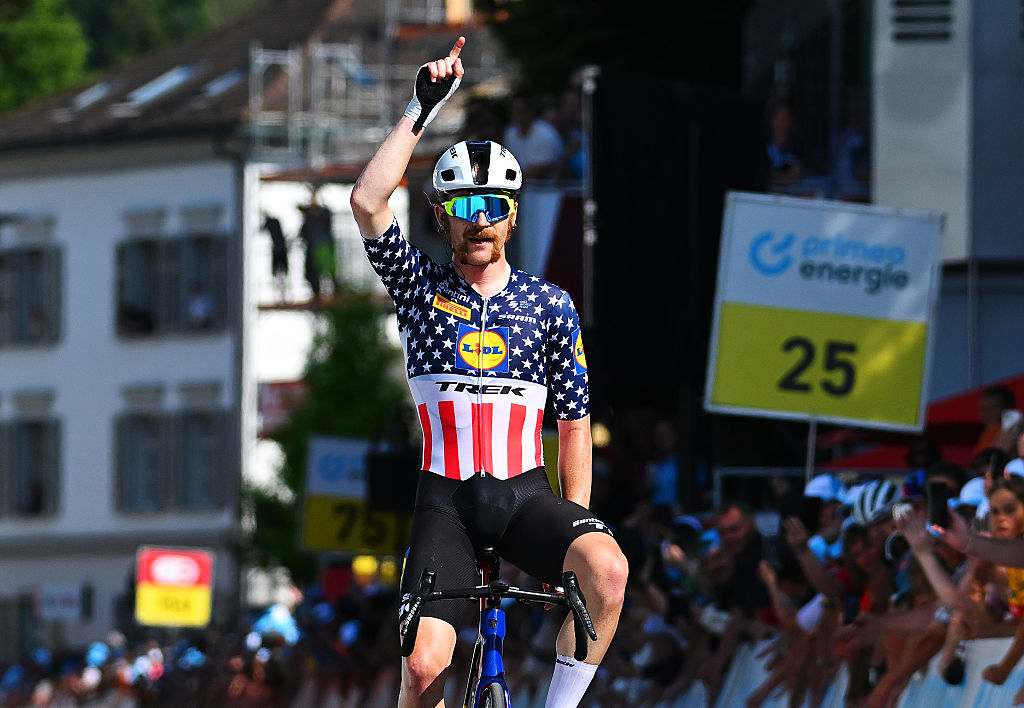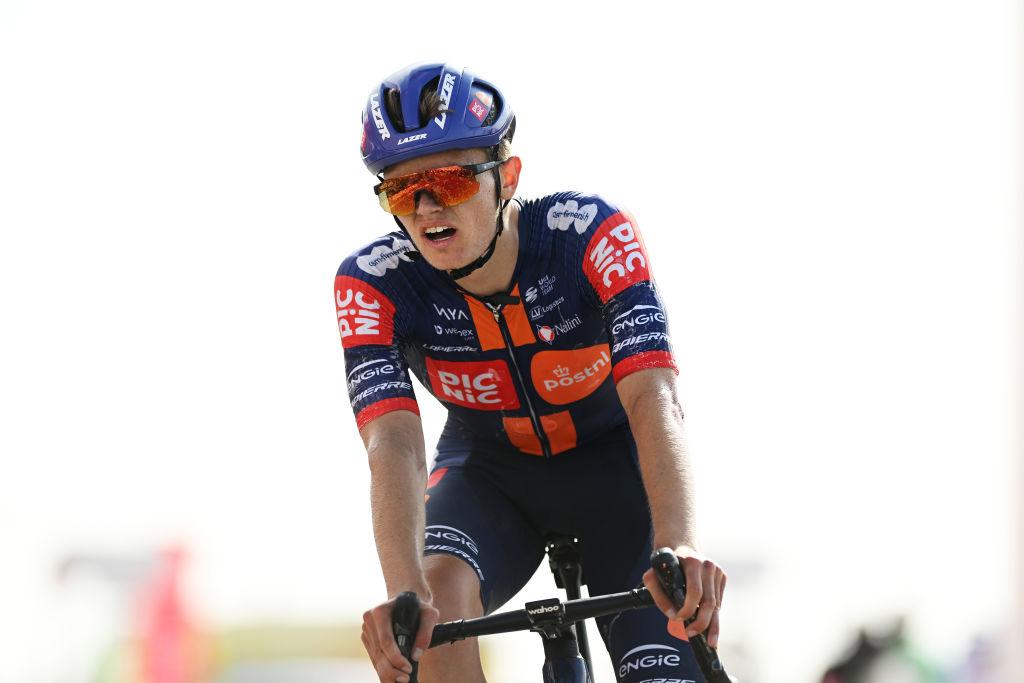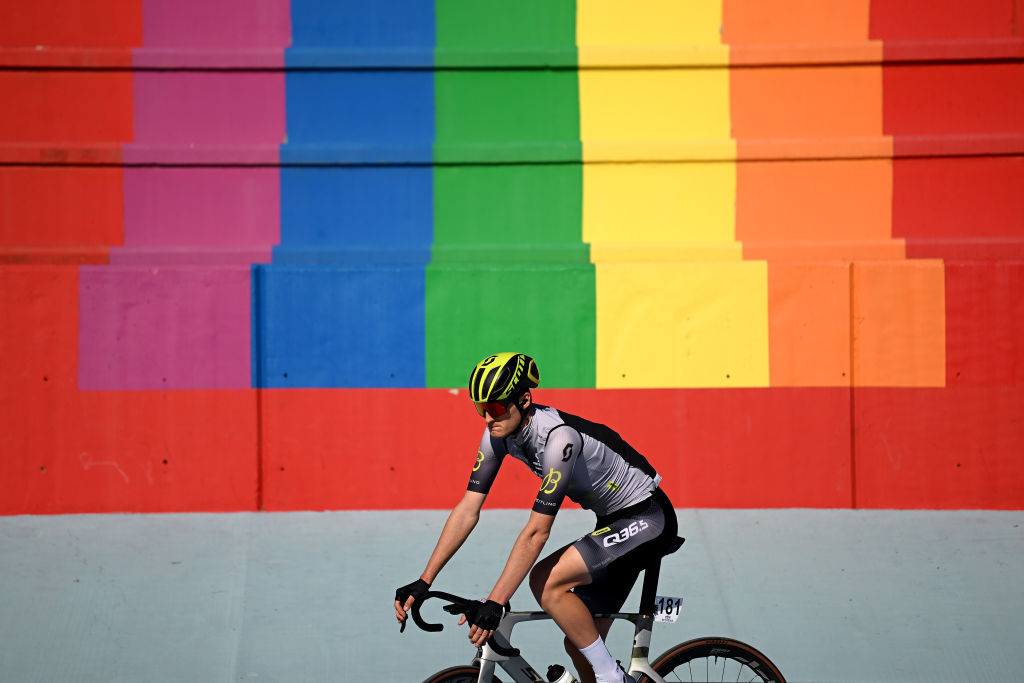Critérium du Dauphiné 2023 route
Eight stages for the pre-Tour de France form test in June
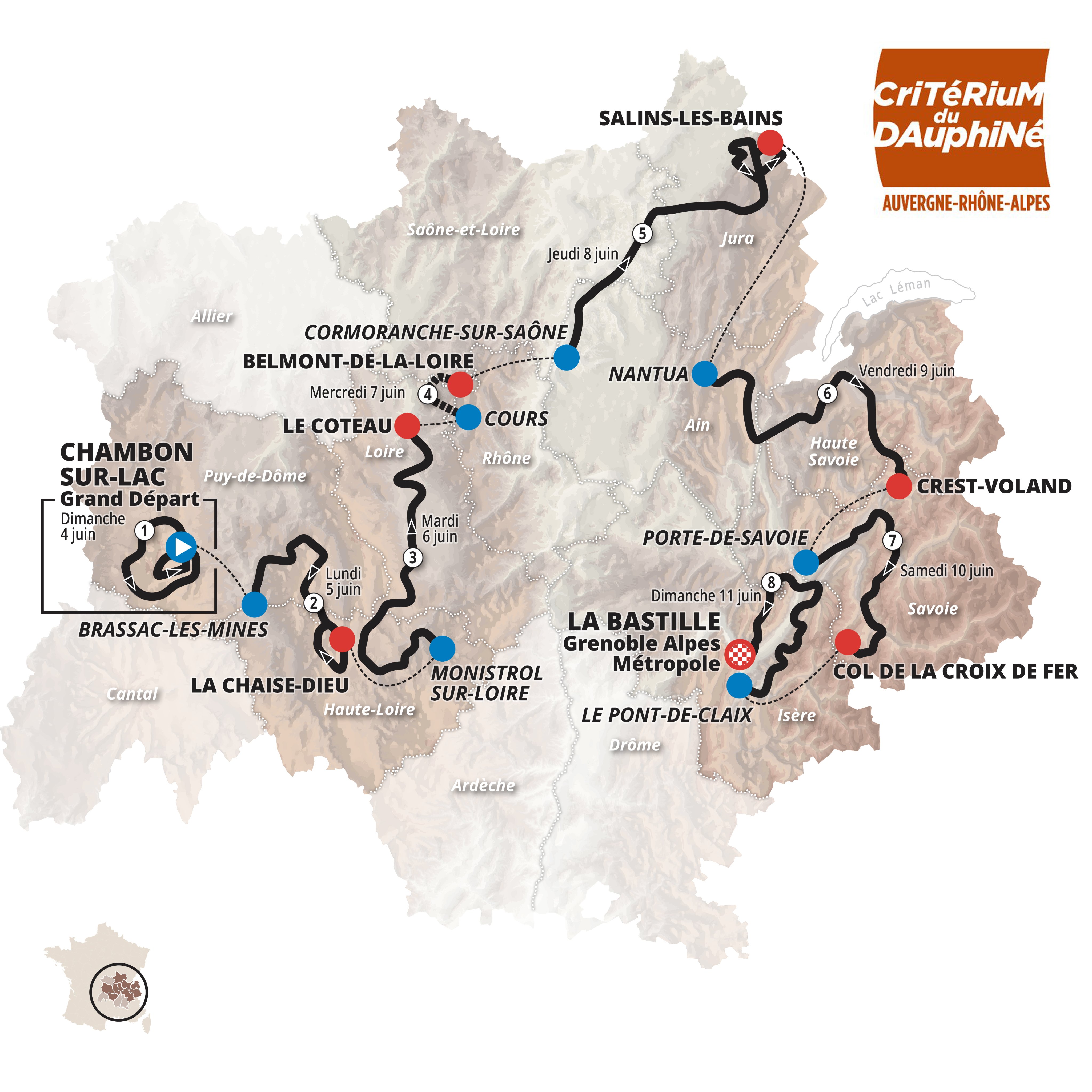
The 2023 Critérium du Dauphiné, which takes place from June 4-11, presents riders with a slow build from the rolling terrain of the Puy-de-Dôme department at Chambon-sur-Lac to the highest finish in the race's history on the Col de la Croix-de-Fer over eight stages.
| Stage | Start-Finish | Date | Distance |
|---|---|---|---|
| Stage 1 | Chambon-sur-Lac - Chambon-sur-Lac | 2023-06-04 | 157.7km |
| Stage 2 | Brassac-les-Mines - La Chaise-Dieu, | 2023-06-05 | 167.3km |
| Stage 3 | Monistrol-sur-Loire - Le Coteau | 2023-06-06 | 191.3km |
| Stage 4 | Cours - Belmont-de-la-Loire (ITT) | 2023-06-07 | 31.1km |
| Stage 5 | Cormoranche-sur-Saône - Salins-les-Bains | 2023-06-08 | 191.1km |
| Stage 6 | Nantua - Crest-Voland | 2023-06-09 | 168.2km |
| Stage 7 | Porte-de-Savoie - Col de la Croix de Fer | 2023-06-10 | 147.7km |
| Stage 8 | Le Pont-de-Claix - La Bastille – Grenoble Alpes Métropole | 2023-06-11 | 152.8km |
Sunday, June 4, 2023: Stage 1 - Chambon-sur-Lac to Chambon-sur-Lac, 157.7 km
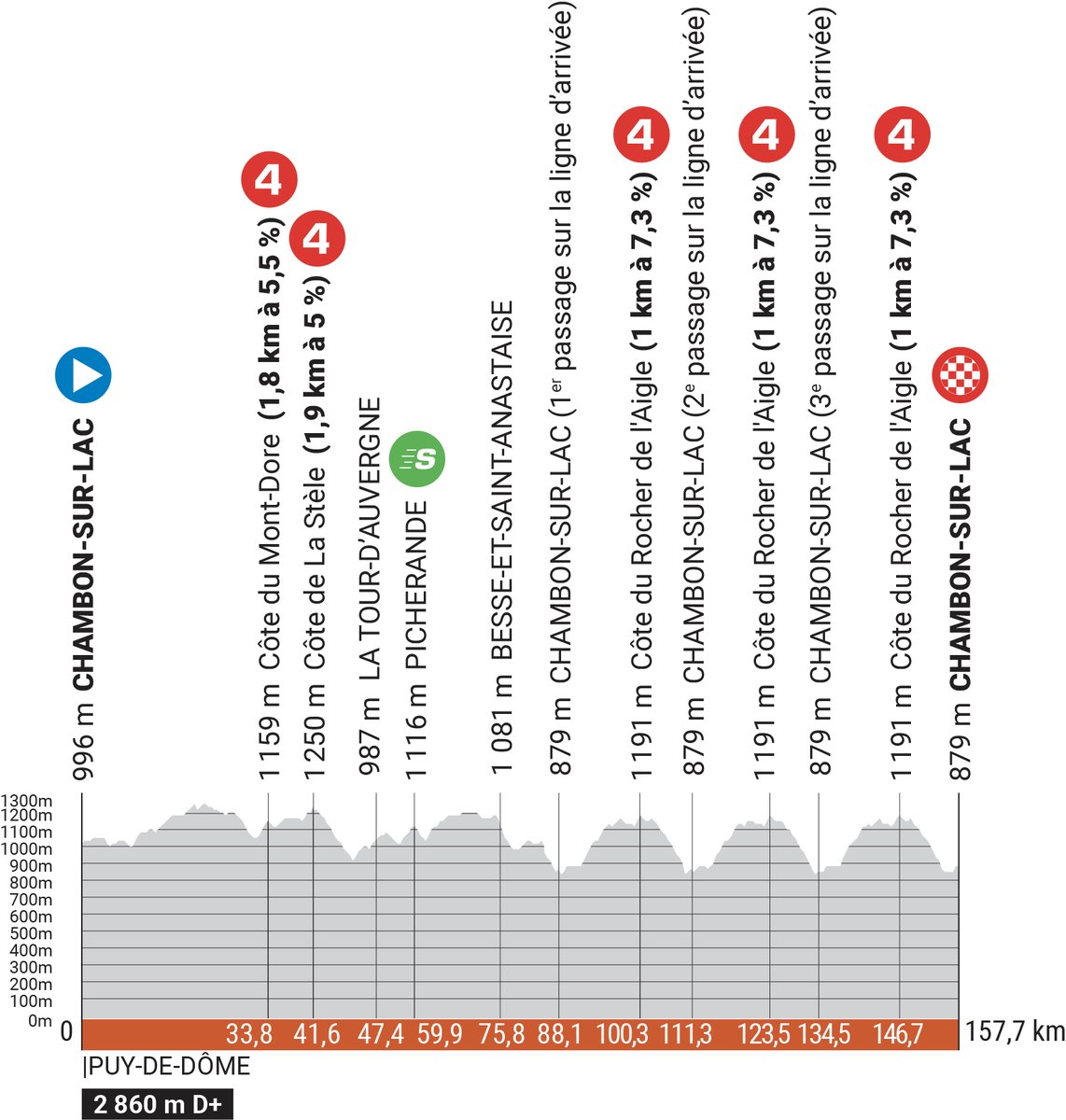
The opening stage takes place around Chambon-sur-Lac, a commune that sits in the shadow of the sprawling Parc naturel régional des Volcans d'Auvergne - an area of 80 dormant volcanoes - one of which, the Puy-de-Dôme, gives the department its name.
The peloton will have to wait to tackle any major climbs, however, as they skirt the Super-Besse ski station and tackle instead five category 4 climbs in the foothills. After one large lap, the stage finishes with three loops of a circuit that includes the Côte du Rocher de l'Aigle, the last ascent crested with around 10km to go, before a descent to the finish and uphill kick to the line.
Monday, June 5, 2023: Stage 2 - Brassac-les-Mines to La Chaise-Dieu, 167.3 km
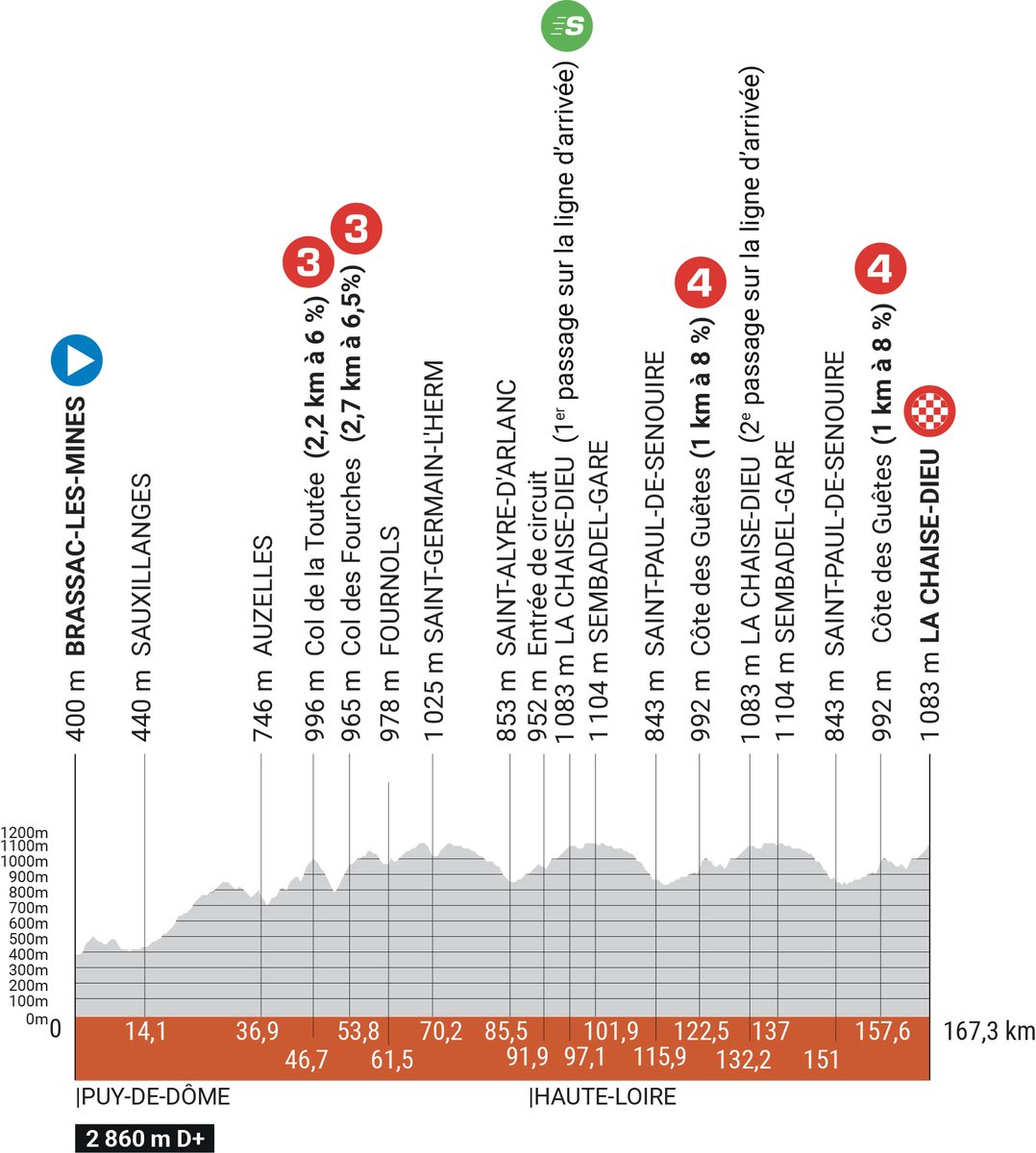
Stage 2 of the 2023 Criterium du Dauphine takes place on June 5 with a 167.3km route out of Brassac-les-Mines in Puy-de-Dôme and into Haute-Loire with a finishing circuit in La Chaise-Dieu.
It's a lumpy route with four categorized climbs, but is front-loaded with two category 3 ascents, the Col de la Toutée (2.2 km at 6%) and Col des Fourches (2.7 km at 6.5%). The two finish laps include the category 4 Côte des Guêtes (1 km at 8%) with another climb inside 10km to go. It's another stage for the puncheurs.
Tuesday, June 6: Stage 3 - Monistrol-sur-Loire to Le Coteau, 191.3 km
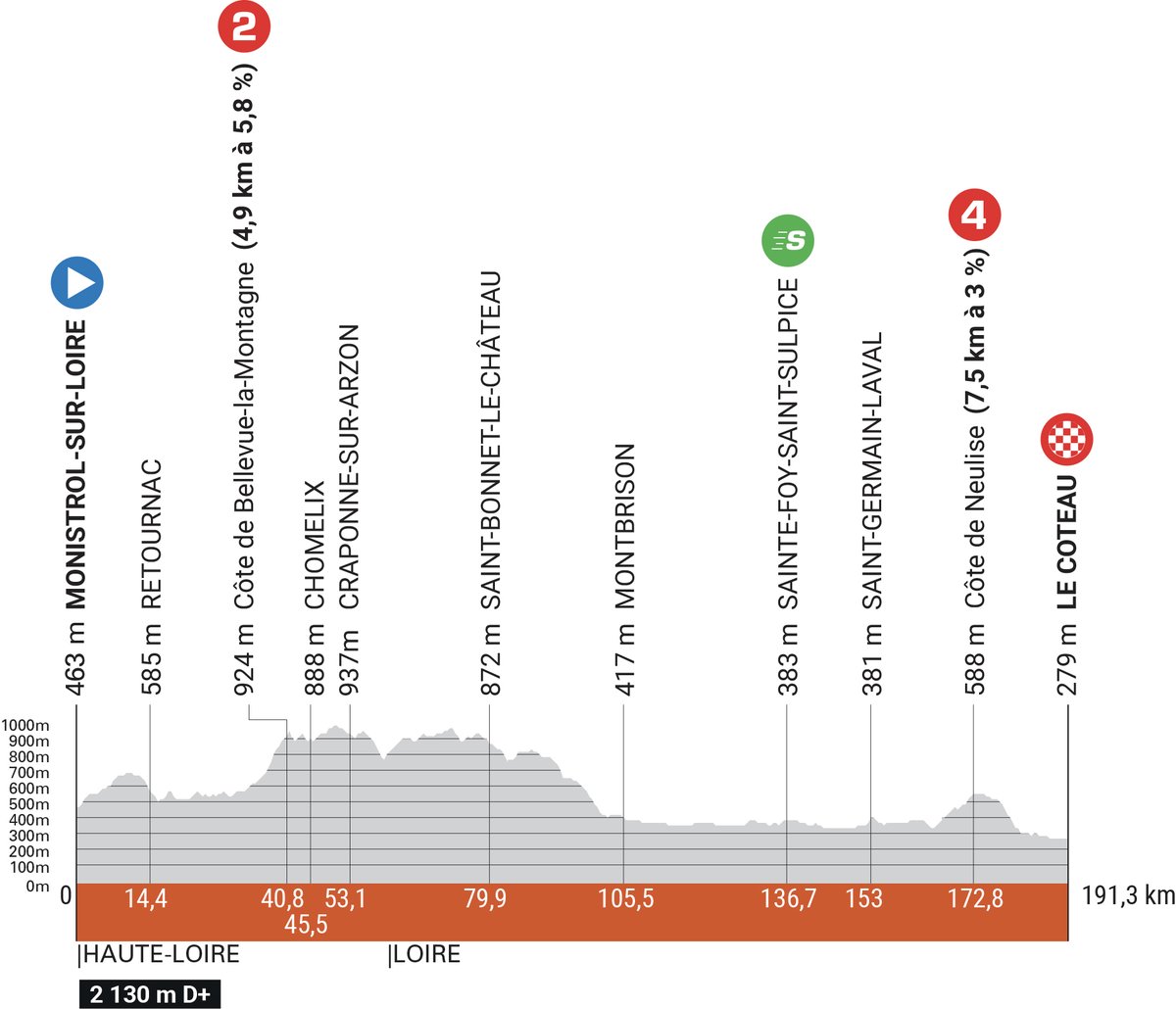
The sprinters will have their day if all goes to plan on stage 3 with the Critérium du Dauphiné leaving the Massif Central and heading toward flatter ground outside Lyon. The stage is not without its difficulties, however. Riders must tackle the category 2 Côte de Bellevue-la-Montagne (4.9 km at 5.8%) just 36km into the stage, but other than that, it should be smooth sailing on this longest stage of the race.
The category 4 Côte de Neulise (7.5 km at 3%) inside 20km to go will hardly get in the way of the sprinters and will probably only spell the end of the day's early breakaway.
Wednesday, June 7: Stage 4 - Cours to Belmont-de-la-Loire, 31.1 km individual time trial
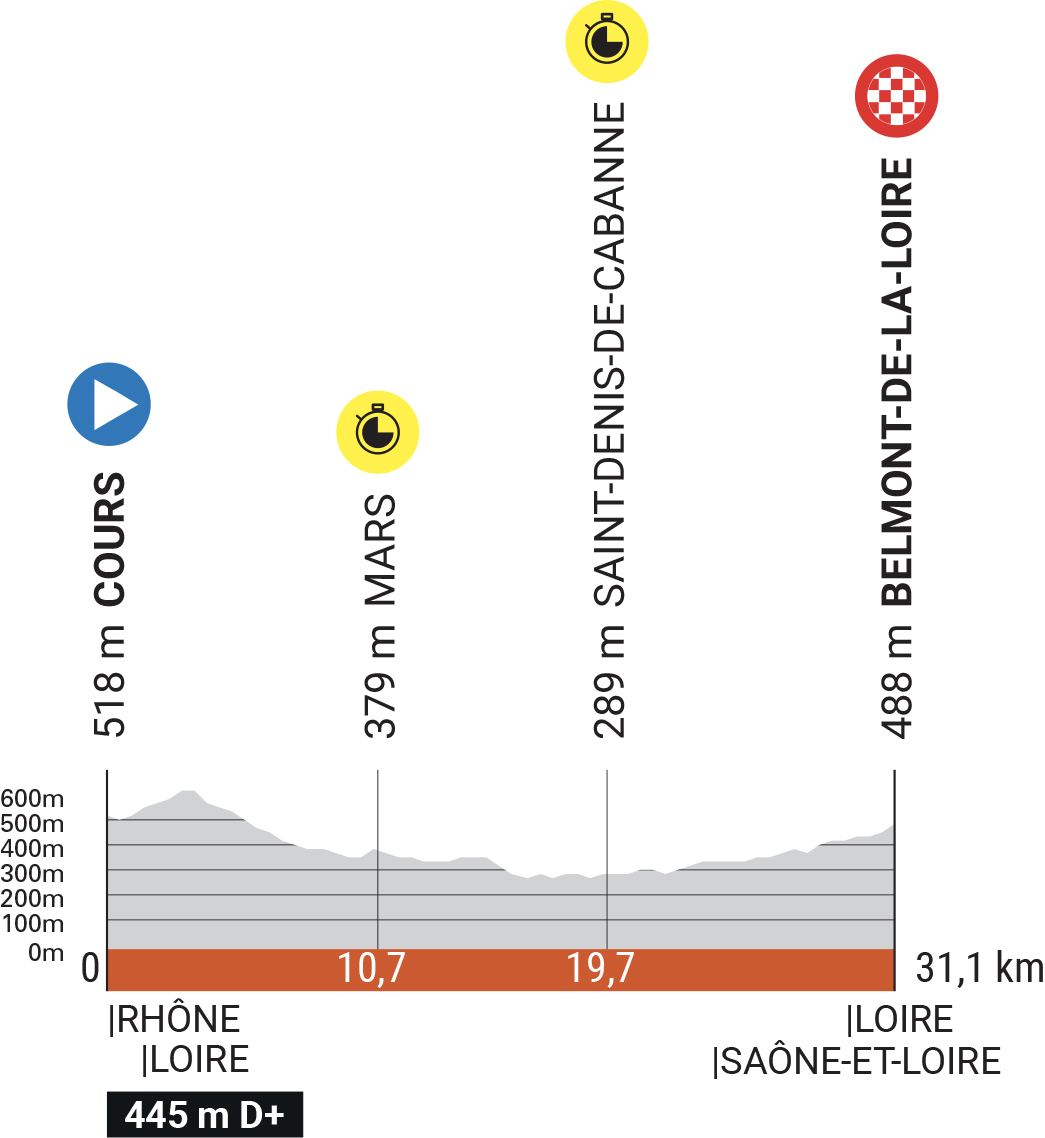
The battle for the overall victory in the 2023 Critérium du Dauphiné begins in earnest with the 31.1km individual time trial on stage 4. The route is a bit tougher than the similar test in 2022, which Filippo Ganna (Ineos Grenadiers) won by two seconds over Wout van Aert (Jumbo-Visma).
The distance is enough for some contenders to put a minute or more into the pure climbers and last year the similar stage in La Bâtie d’Urfé was where Primož Roglič (Jumbo-Visma) set the stage for his overall victory.
Thursday, June 8: Stage 5 - Cormoranche-sur-Saône to Salins-les-Bains, 191.1 km
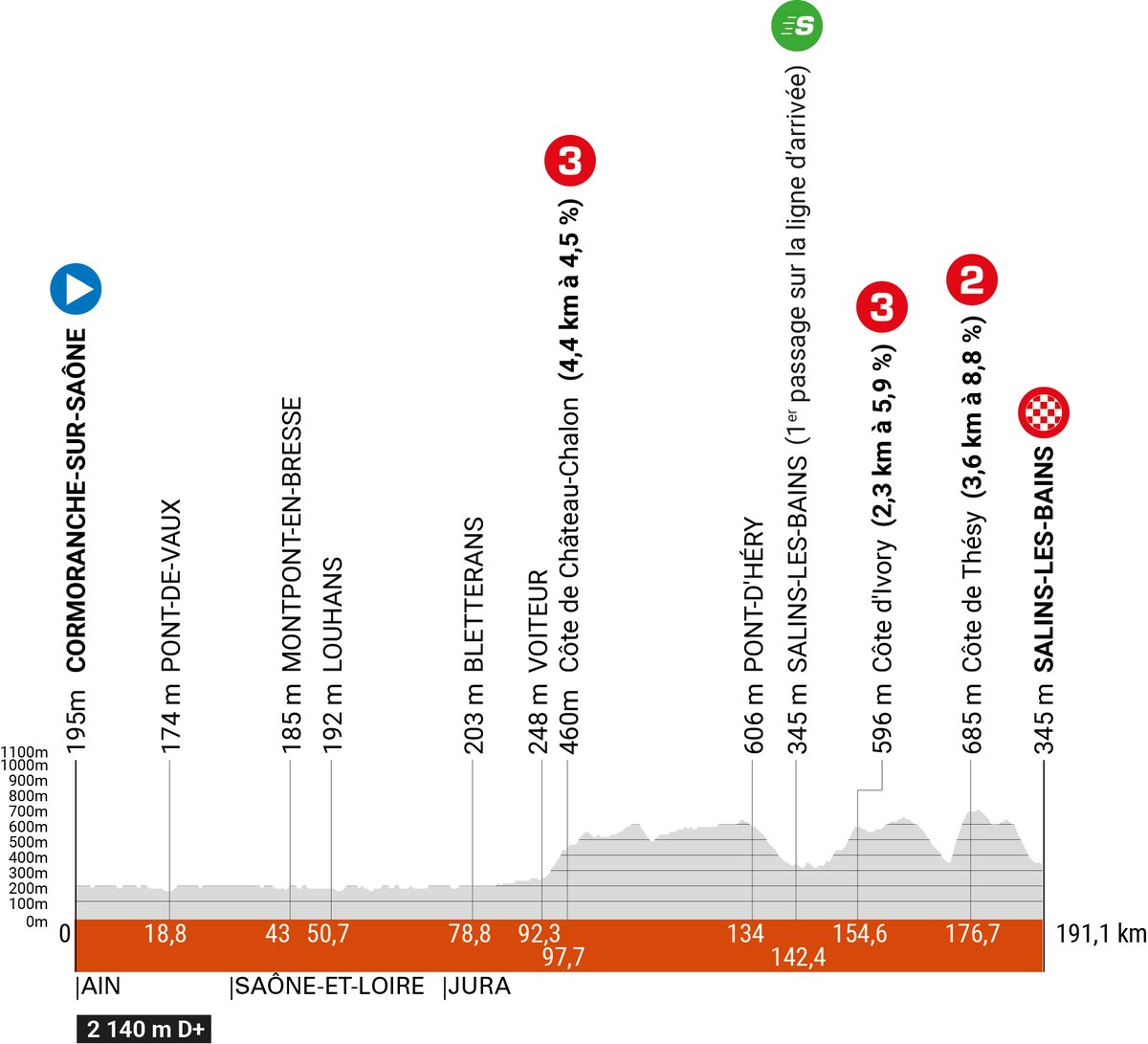
The Critérium du Dauphiné gets more complicated on stage 5 as the peloton heads into the Jura department and the climbs get harder and steeper. The flat, first two hours will help riders recover from the time trial but they'll need to find their climbing legs by the final 40 kilometres.
There are two category 3 climbs, the Côte de Château-Chalon (4.4 km at 4.5%) at km 97.7 and Côte d’Ivory (2.3km at 5.9%) at km 154.6. They'll top the beastly Côte de Thésy (3.6km at 8.8%) inside 15km to go, so it will undoubtedly be a climber who wins this stage.
Friday, June 9: Stage 6 - Nantua to Crest-Voland, 168.2 km
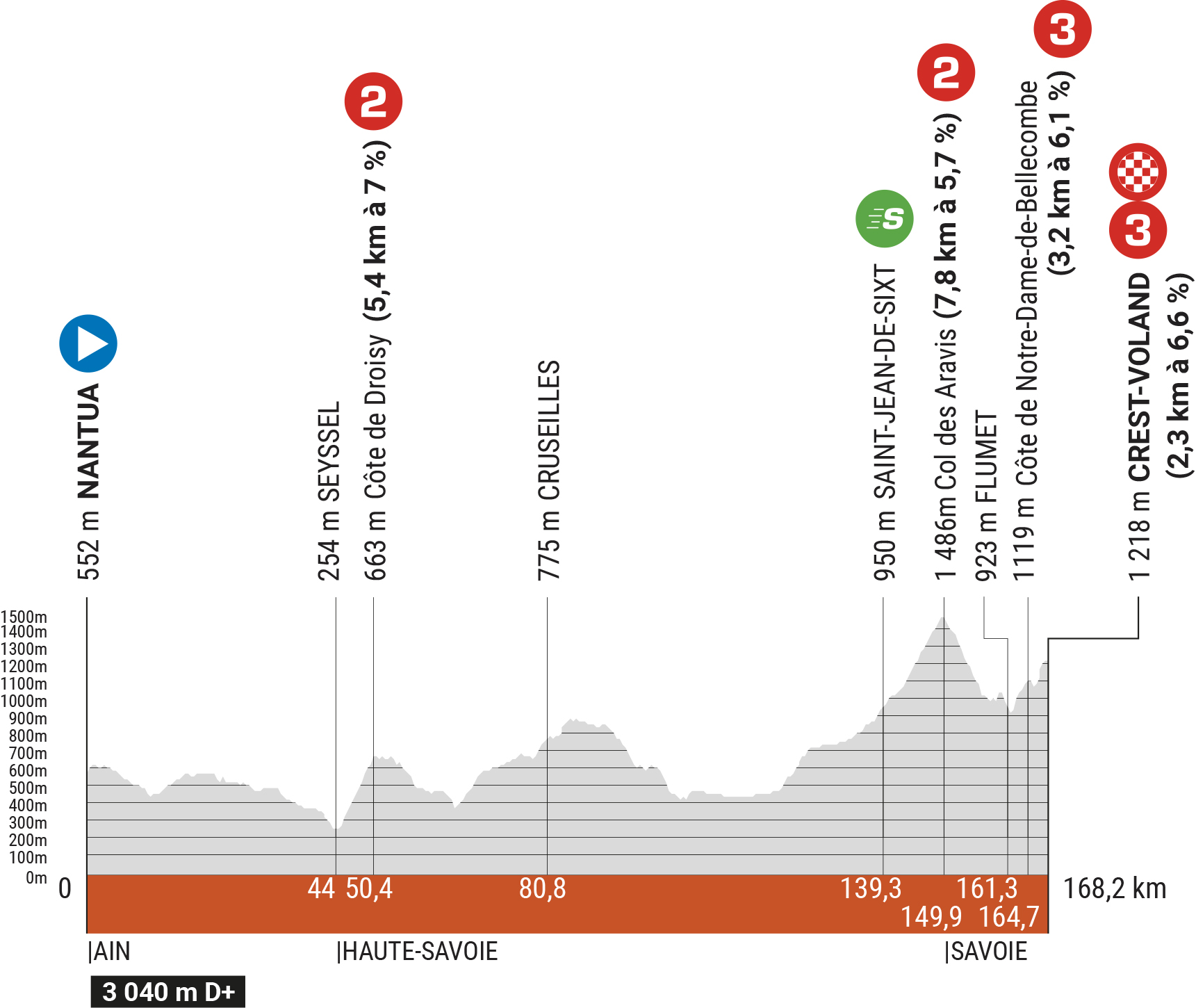
The build of intensity ramps up another notch on stage 6 of the Dauphiné, with the first summit finish of the week. The stage from Nantua to Crest-Voland heads into the Alps with one category 2 climb coming in the first half of the day. One category 2 and two category 3 ascents cap off the stage inside the last 20km.
The Côte de Droisy (5.4km at 7%) comes 100km before the Col des Aravis (7.8km at 5.7%) so the fight to get into the breakaway will come either before or on the Droisy.
The Aravais will soften the legs, but the descent following it will allow some riders to chase back on. The Côte de Notre-Dame-de-Bellecombe (3.2km at 6.1%) comes directly before the final climb to the finish, the Côte de Crest-Voland (2.3km at 6.6%) without much descending to break it up.
Saturday, June 10: Stage 7 - Porte-de-Savoie to Col de la Croix de Fer, 147.7 km
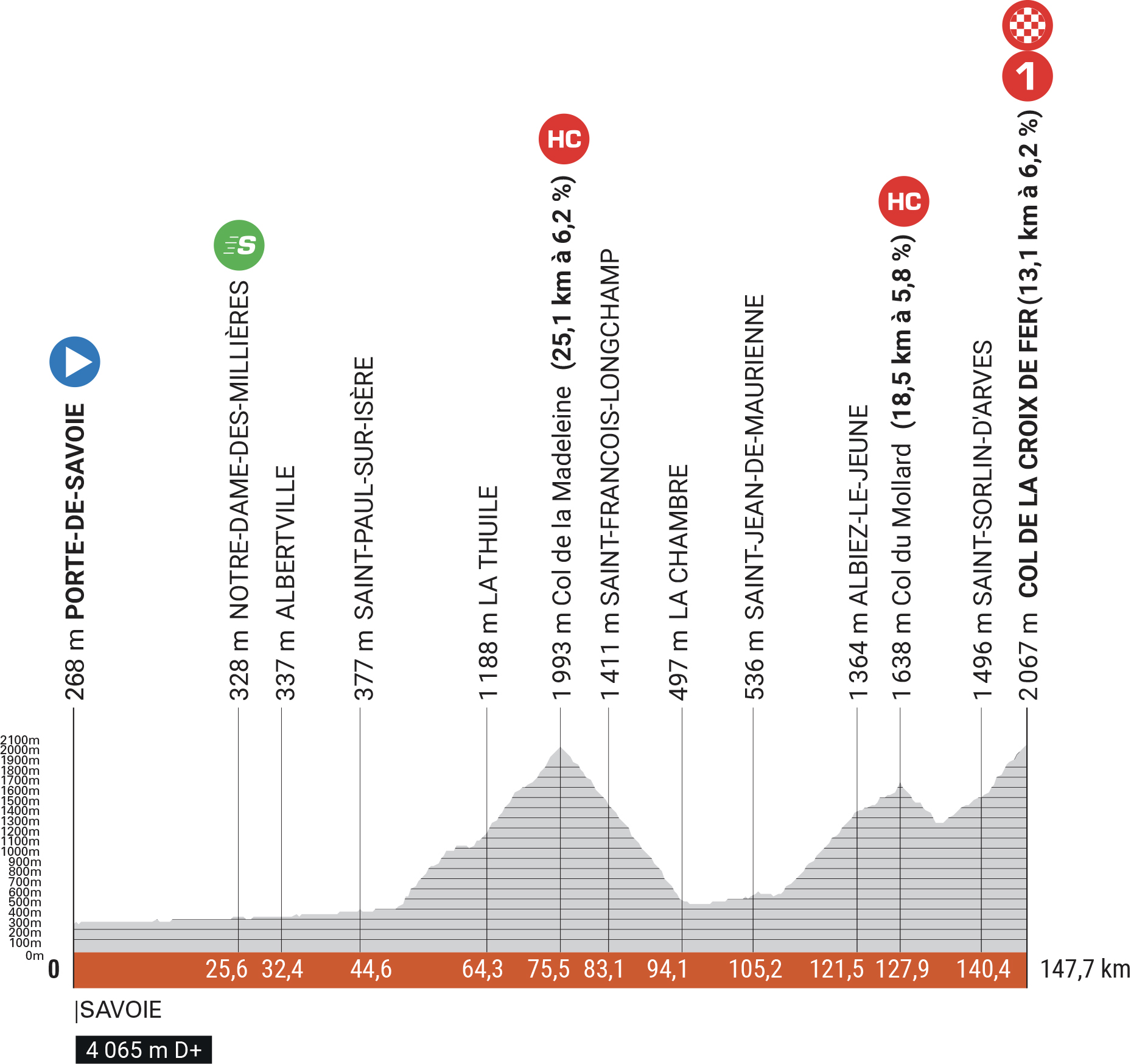
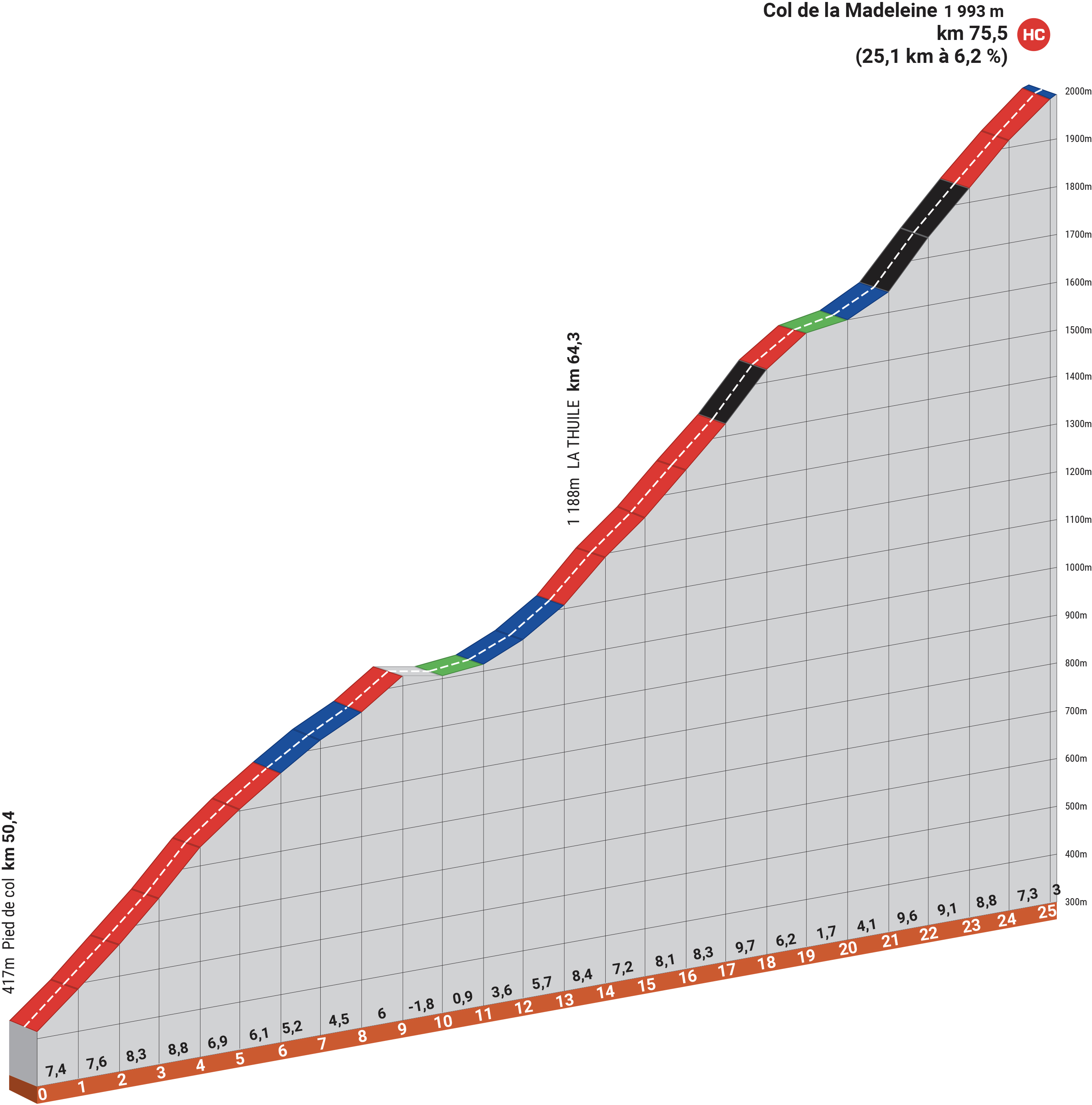
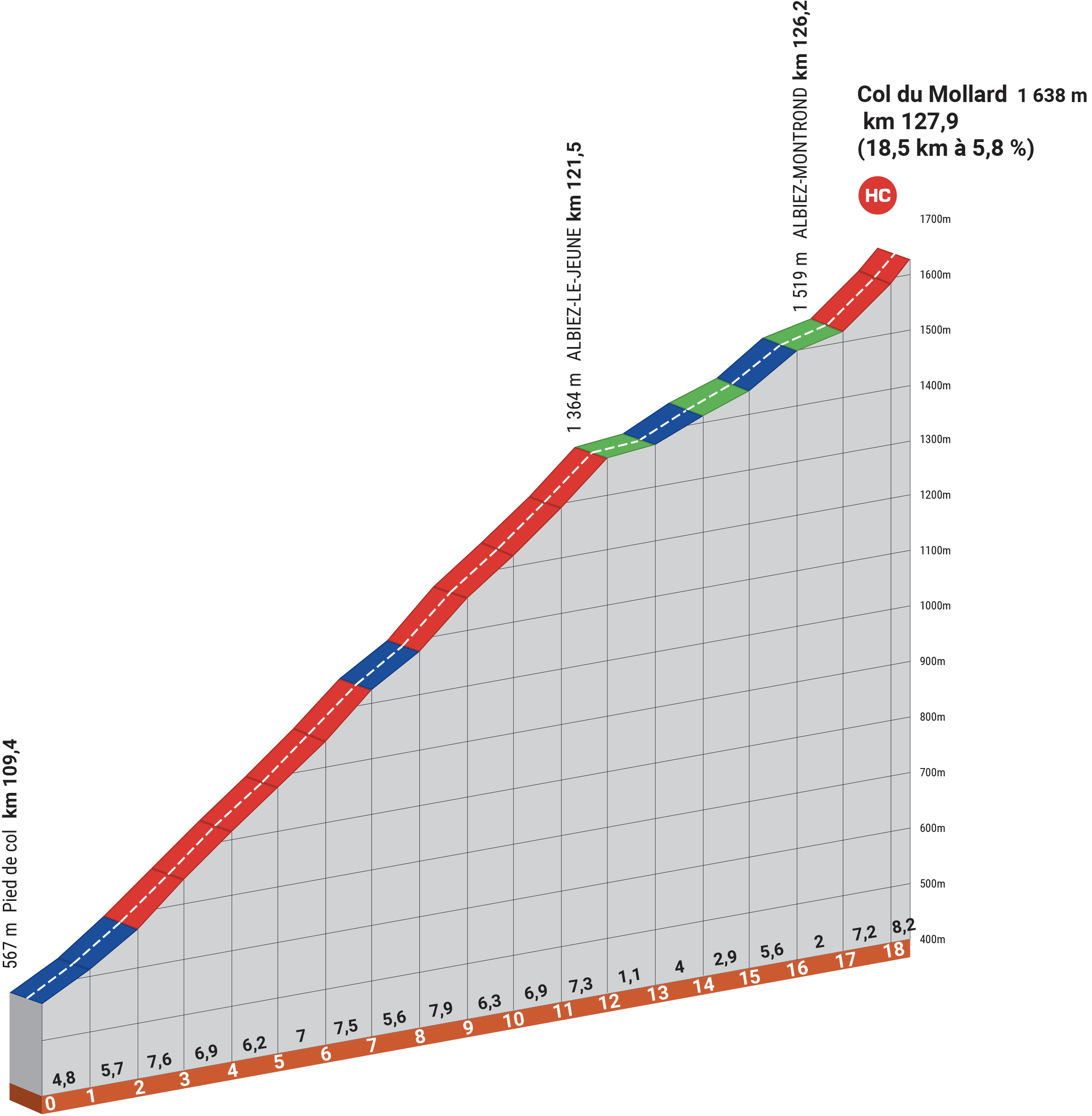
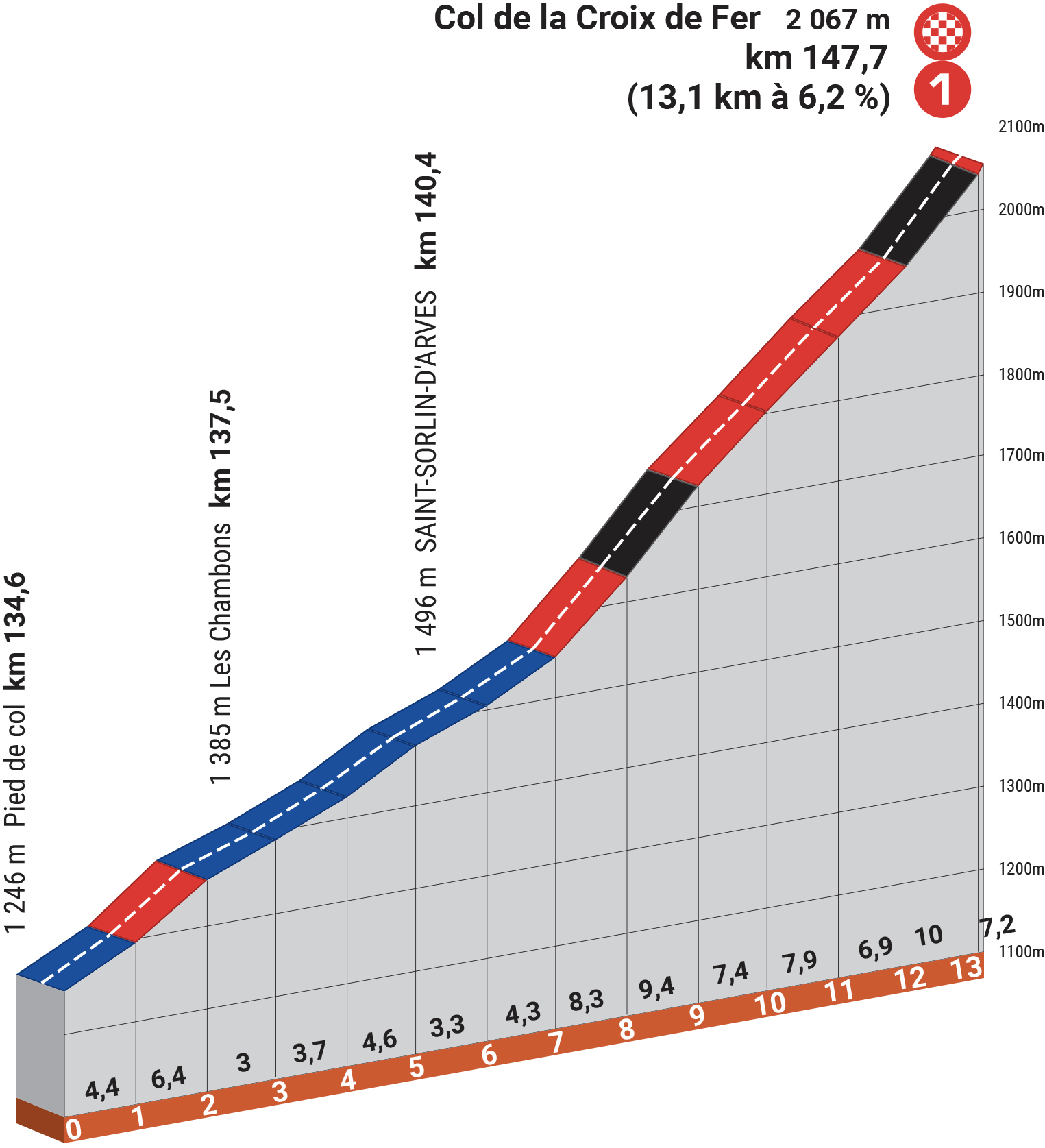
The queen stage of the 2023 Critérium du Dauphiné comes on the penultimate stage with the highest finish in the event's history (by three metres) coming on the Col de la Croix de Fer.
At just 147.7km in length and the first of two hors categorie climbs coming at the midpoint, there could be attacks from the overall contenders early in the stage. The riders hit the Col de la Madeleine (25.1km at 6.2%) at kilometre 75.5, then have a long descent and chase through the valley to the Col du Mollard (18.5km at 5.8%) at km 127.9.
From there, it's less than 20km to the summit of the Col de la Croix de Fer with little in the way of descents for recovery. The final climb is 13.1km and averages 6.2%, but that belies the punishing sections of double-digit grades including the final kilometre.
Riders crested the Croix de Fer in 2022 but it was a mid-stage climb. It's been featured 21 times in the Tour de France and five other times in the Dauphiné, but this is the first time the climb has been used as a stage finish.
Sunday, June 11: Stage 8, Le Pont-de-Claix to La Bastille – Grenoble Alpes Métropole, 152.8 km
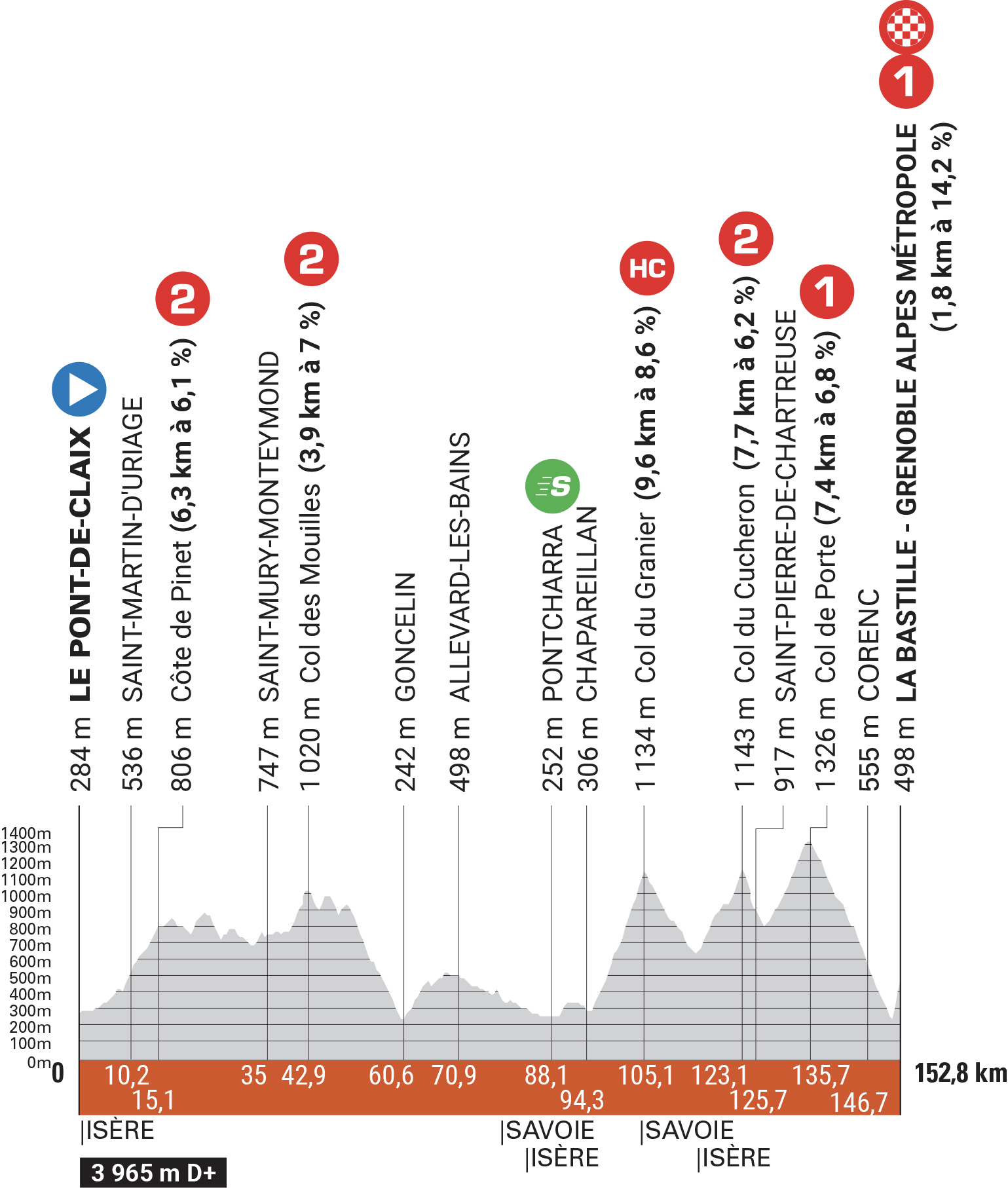
Unlike the Tour de France, the final stage of the Critérium du Dauphiné is no cakewalk. This 152.8km stage has six categorised climbs including the final kick to the Bastille of Grenoble.
The climbs come throughout the stage, with two category 2 climbs - the Côte de Pinet (6.3km at 6.1%) and Col des Mouilles (3.9km at 7%) in the first 50km and four climbs in the last 50km. The hors categorie Col du Granier (9.6km at 8.6%), category 2 Col du Cucheron (7.7km at 6.2%) and Col de Porte (7.4km at 6.8%) will batter the riders before they face the killer climb to the Fort de la Bastille. It's 1,800 metres long but a ridiculous 14.2% average and a section of 22% grades.
A punishing finale that will certainly produce a worthy winner.
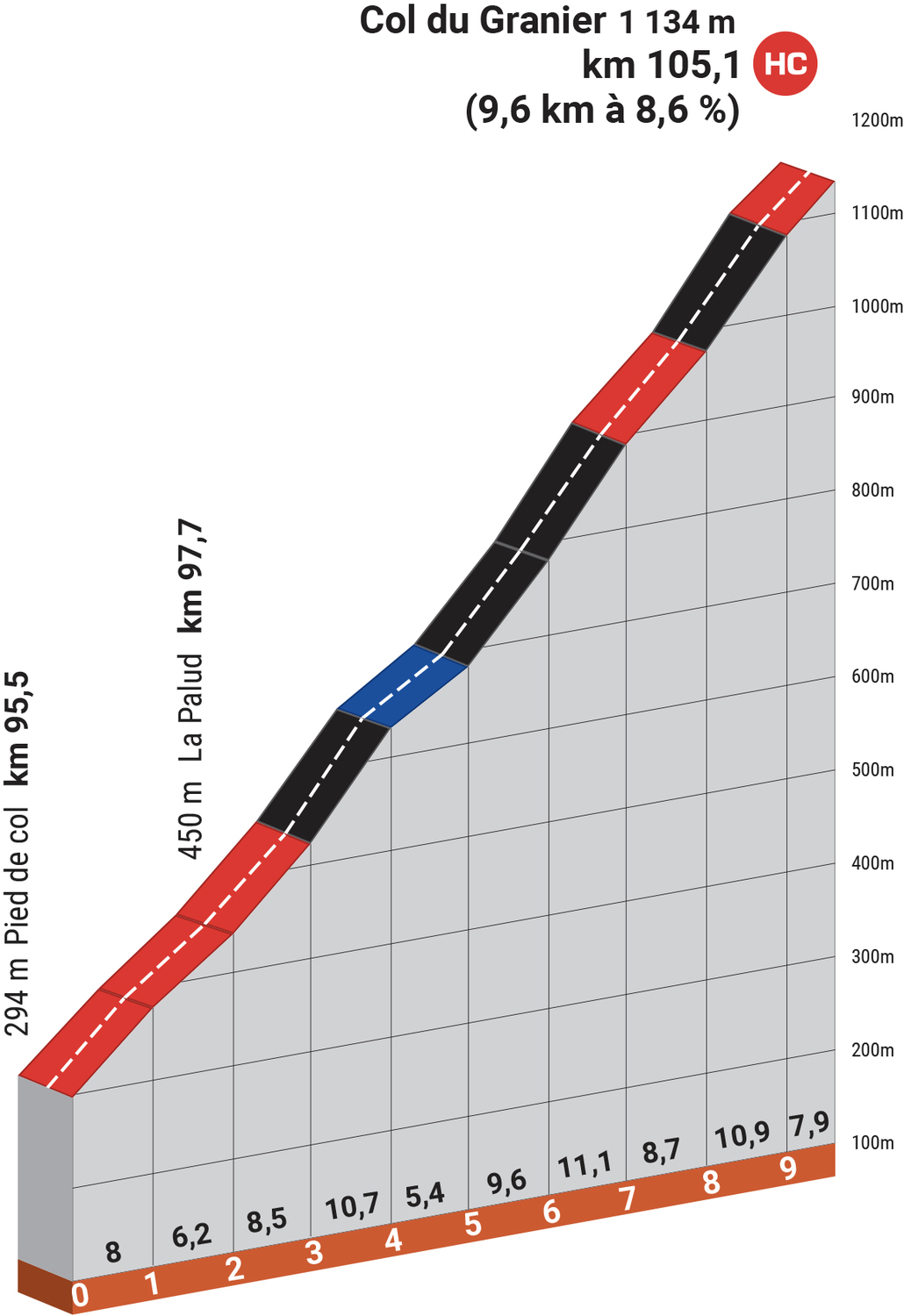

The latest race content, interviews, features, reviews and expert buying guides, direct to your inbox!

Laura Weislo has been with Cyclingnews since 2006 after making a switch from a career in science. As Managing Editor, she coordinates coverage for North American events and global news. As former elite-level road racer who dabbled in cyclo-cross and track, Laura has a passion for all three disciplines. When not working she likes to go camping and explore lesser traveled roads, paths and gravel tracks. Laura specialises in covering doping, anti-doping, UCI governance and performing data analysis.
Latest on Cyclingnews
-
Do indoor cycling minutes count for more?
To train or not to train indoors – that is the question. We delve into cycling’s most challenging training conundrum to decide which method is best for you and your goals -
Quinn Simmons and Will Barta bring key boost to US presence at 2025 Tour de France
US National Champion riding with Lidl Trek, Barta to make Tour debut with Movistar -
Young British talent leads Picnic-PostNL's 'hunt for stage success' as team unveils Tour de France squad
Onley, Van den Broek, Barguil, Lund Andresen, Bittner also in a squad built to compete on all terrains -
'I opened a B&B, and now I'm national champion' – Why Filippo Conca's spectacular upset win means there will be no Italian tricolore jersey in the pro peloton
Club racer beat former teammates and rivals from pro peloton to clinch biggest victory of his career as Ganna says 'cycling is going to lose a lot'

